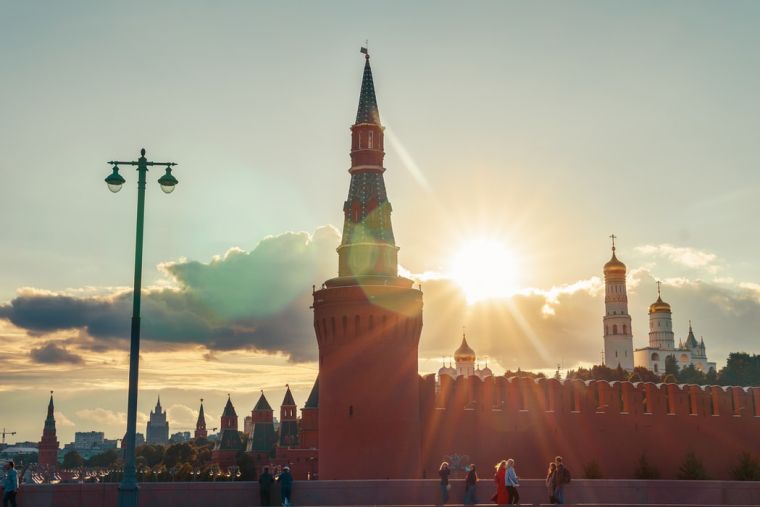The church in the Soviet Union: watched like a 'fish in an aquarium'

Thirty years ago in August started the irreversible process of the collapse of the Soviet Union. How did the church survive behind the Iron Curtain and what challenges did it meet following the dissolution of the USSR?
Secret police, informers and spies were everywhere. Olga was aware of it. Growing up in Central Asia, she knew of people who had confessed their Christian faith and as a result ended up in the Gulag, the Soviet labour camp, from where only few ever returned. A deacon from her local church did not; his dead body was sent to the village. Olga's own father was a prisoner of conscience far away in Siberia.
"As Christians we always felt the tension of persecution," Olga recalled in a conversation with Christian anti-persecution charity Open Doors in 1991, shortly after the dissolution of the Soviet Union.
"It was like being a fish in an aquarium – everything you did or said was monitored. Even your own apartment could be bugged; you did not feel free anywhere. You continually felt the hot breath of the KGB. My brother and I discovered at a certain moment that our apartments had been bugged. We were walking on eggshells constantly."
In a federal state of 15 nations, and many cultures and languages, the state imposed a single "unifying" doctrine. For 70 years a wholly atheist Marxism was the official ideology, clouding people's intellectual and spiritual lives.
"We were second-class people, enemies of the communist ideology, so we were enemies of society, of the country. Enemies of the state!" Olga continued. "Many things happen to you when you are a second-class citizen."
Officially recognised churches continued their quiet existence, but outreach was forbidden and almost impossible. The position of the leadership of the official churches, which were under state control, was that they had to compromise for the church to survive. Evangelical churches preferred to go underground. They were the main targets of the authorities.
The fear among Christians in those churches was sometimes overwhelming. "We never knew who we could trust. The KGB made sure that division and mistrust were sown," Olga said. "Even with your own brothers and sisters you'd be very cautious. You can still see that same fear and mistrust among Christians nowadays in countries where there is persecution."
Fines, harassment, discrimination, imprisonment were all components of the persecution. In the beginning of the 1960s, under Nikita Khrushchev, the authorities had the right to take children away from Christian parents and put them in an orphanage so they could be raised by the state, Olga recalled.
Christian faith severely hampered the development of a person's career. Entrance to university was almost impossible; involvement in politics or government functions was out of the question. "It was all part of the package we had to deal with as Christians during the Soviet times," Olga said.
Winds of change
Two years after Mikhail Gorbachev became the leader of the Communist Party, he signed a special amnesty for the prisoners of conscience and political dissidents who were still in detention. On 18 June 1987, the Soviet government published a decree about the amnesty. Olga's father's name was on the list. He returned home after four years of imprisonment.
With the final dissolution of the USSR in December 1991, the waves of persecution of Christians came to a halt. The introduction of freedom of expression and belief made it possible to preach Christianity in the strongly atheist post-USSR society.
Describing the early 1990s, Olga said: "In some traditional churches the style of services changed, and many new churches were formed. The number of Protestant denominations increased rapidly."
Although people were now officially free to preach and believe, the church soon started facing new challenges. The mixture of nationalism and religion was one of them. This is particularly true in Central Asian nations; despite the 70 years of atheism, following the collapse of the USSR, Islam was seen as part of national identity there. Those who left it to convert to Christianity were considered traitors.
As in the Soviet times, traditional churches in the post-Soviet countries were expected to support the government.
"Traditional churches have always been on the side of the government. The moment a church is seen to be against the government, it moves into a danger zone," says William Hollander, Open Doors' International Relations Officer for Central Asia.
"As it was in the Soviet era, this issue still exists in many of the post-Soviet countries, including Russia and Belarus.
"The problem mainly comes with the evangelical and Protestant churches; Belarus is increasingly unsafe for them, and Russia keeps a serious check and limitations on their international funding."
However, with Communism consigned to history, Christians were ready to embrace these challenges, Olga said. The relief of no longer being constantly monitored meant she and her family started to breathe again.
"Instead of feeling like we were fish swimming inside an aquarium – always being watched - we began to swim in the ocean! We had that incredible sense of freedom. We had freedom to preach the Gospel. Nobody would stop us."
Open Doors UK & Ireland is part of Open Doors International, a global NGO network which has supported and strengthened persecuted Christians for over 60 years and works in over 60 countries. In 2020, it raised £42 million to provide practical support to persecuted Christians such as food, medicines, trauma care, legal assistance, safe houses and schools, as well as spiritual support through Christian literature, training and resources. Open Doors UK & Ireland raised about £16 million.











